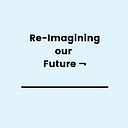Re-Imagining Stewardship
As I stand, barefoot, in the damp grass, at one of the many bends in the slow moving Ōpāwaho Awa, on a sunny yet slightly chilled Spring morning, I bear witness to the sacred energy and simplicity of this ageless beauty. The longer I stand the deeper my heart sinks into my chest and beats as one with the breath of Papatūānuku, our brave and strong mother of life. I feel the grass grow around my feet, standing taller as our energies become one. I breathe deeply and close my eyes… the gentle breeze caresses my skin, a nearby kokako serenades the landscape… in those brief moments I am in a deeply peaceful relationship with the world, which is in such stark contrast to the busy and bustling experience of the world that surrounds me.
These peaceful moments transcend the boundaries of time, connecting me with past, present and future all at once. There is a deep certitude that I am not the first, last or only soul to be witnessing this peace in this place… I am not the only one witnessing it in this current moment. I can feel the wairua of many beings with me — bearing witness to the same beauty, the same peace and the same deep rooted connection with the essence of all that was, is and will be.
My mind slowly awakens, unconsciously connecting to the ancient mythical tales of the wisdom of the generations that walked these lands before us. Gods that towered above us, that lived amongst us… elemental forces that pushed and pulled us… nourished or deprived us… celebrated or admonished us.
These same Gods still walk this journey with us today. We do not use the same names that our ancestors did. In fact many of us do not see them or name them at all. As we have slowly drifted away from being in deep relationships with our world, we have lost the knowingness of how to witness them, we have lost the voice to call out to them. They are still there, they bear witness to the brokenness that we have created that we do not see or feel as we should… or maybe we do, and yet we are so far from the path not measured in distance that we live in a perpetual state of disempowerment. Living, disembodied, with ungrounded truths.
Is it possible to care for something that we do not acknowledge? Especially, when the exploitation of it is a part of our livelihoods, our means for providing sustenance to our families? Extraction is increasingly becoming linked to our economic well being and our way of life.
We clear a diverse area of living, wooded areas, so we can build our private homes. We deface mountains for our marble countertops. For our convenience, we create packaging that is not biodegradable, and that oftentimes ends up polluting the surrounding ecosystem. We spray poisonous chemicals on the foods we consume, so they grow faster. We overcrowd living animals in stables, so they can create more substance for our consumption. We judge, and beat ourselves up.
It is none of our faults, and it is all of our faults at the same time… [deep breath]…
It is our collective responsibility. Seeing ourselves as stewards of the Earth, do you think we are doing a satisfactory job? What can we do to change? As individuals? As communities? Can you imagine a future where we care for the non-human beings (trees, soil, fish, oceans etc.) as we would care for our children? Where the well-being of the environment is the guiding force of our strategic plans? Can you imagine a world where we are incentivized to care? Or, beyond incentives, where we are socialized to learn how to care, and this caring becomes embodied in our actions? Where instead of competing for individual gain, we cooperate for collective good?
Lead Author: Michael Reynolds (first four paragraphs)
Michael works as a freelance contractor in the food justice and food sovereignty space in Aotearoa.
This manifests in several different ways — development of physical public spaces, writing and systems level project development — all with a consistent ethos of connection, reciprocity and deep care at their core.
Roimata Food Commons is a project that started and continues to emerge from a deep connection with Papatūānuku and a strong sense of place, driven by the principles of The Commons, it is a multidimensional experience of being alive in all the worlds — past, current and future.
Anchor Author: Daniel Rudolph
Dan Rudolph has been living and working in different countries for the past decade. He is dedicated to re-imagining education and enabling opportunities for experiential learning and connection. One of his current passions is learning and spreading juggling.
Dan will be co-facilitating Re-Imagining Our Future, an online course offered by the Charter For Compassion’s Education Institute, starting October 26, 2020.
